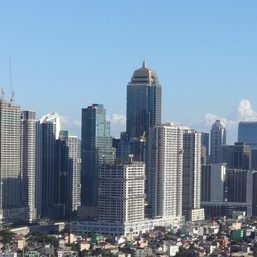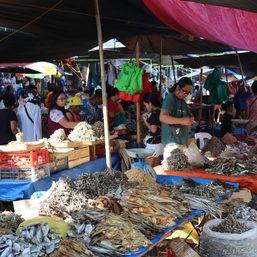SUMMARY
This is AI generated summarization, which may have errors. For context, always refer to the full article.

MANILA, Philippines – Trade and investment activities of US firms in the Philippines remain strained and limited due to “pervasive” corruption and the foreign investment limit provision in the Constitution, a US agency said.
The US Trade Representative (USTR) said in its 2013 National Trade Estimate Report on Foreign Trade Barriers that rampant and persistent corruption on top of the stifling foreign investment cap in the constitution hinder the trade and investment relations of the US and the Philippines to fully blossom.
“Corruption remains a pervasive and longstanding problem in the Philippines and one that can place US companies at a disadvantage in the Philippine market,” the study showed.
In the 2012 Corruption Perceptions Index released by Transparency International, the Philippines scored 34 out of 100 (least corrupt) and ranked 105th out of 176 surveyed countries.
Customs bureau
USTR cited the Bureau of Customs as one of the government agencies heavily ridden with corruption issues. USTR mentioned that “reports of corruption and irregularities in Customs processing persist,” causing “undue and costly delays” that continually hurt business transactions.
This is aside from claims that other government institutions are prone to bribery and vested interests.
“Some also have reported cases of courts being influenced by bribery and improperly issuing temporary restraining orders (TRO) to impede legitimate commerce,” the study said.
The US agency, however, lauds the Aquino government’s commitment to weed out corruption in the system but stressed that there’s more work to be done to fully eliminate this act.
“The Aquino administration continues to implement the anti-corruption reforms outlined in its Philippine Development Plan (PDP) 2011-2016. Nevertheless, corruption remains,” the agency said.
Foreign investment cap
The foreign investment cap in the Constitution has been a long standing issue for foreign investors looking to do business in the country and clamor to change the foreign ownership rule is continually rising.
The US agency claimed that the provision impedes foreign investment flows in the Philippines. The agency outlined some industries affected by this foreign ownership rule:
- Advertising – foreign ownership only at 30%
- Public utilities – foreign investment only at 40%
- Professional services – licensing of practitioners limited only to Filipinos
- Express delivery services – foreign equity participation only at 40%
- Retail trade – foreign investment in small retail ventures only to Filipino citizens
Aside from these industries, USTR also cited two foreign investment restrictions implemented in the country – the Foreign Investment Negative List (FINL) and the land ownership provision in the Constitution.
The FINL through Executive Order (EO) 98 outlines the list of investment areas and economic activities that are reserved for Filipino citizens. Any area under the 9th Regular FINL is off-limits to foreign investors.
Some of the investment areas and economic activities under the list include mass media, cooperative, private security, small-scale mining and financing, among others.
In terms of the land ownership provision in the constitution, the study cited the prohibition of foreign ownership on private lands as the other stumbling block.
Foreigners can only lease a piece of land for 50 years, and is subject to 25 years of renewal. The study, however, said that this “ambiguous property system can make it difficult to establish clear ownership of leased land, and an inefficient judiciary results in land disputes.”
This clamor to ammend the foreign ownership and investment rule in the current constitution is backed by former president Fidel Ramos.
In a forum in February, Ramos called for changes in the constitution to allow more foreign investments to come and for the country “to be more in sync with the development we’re trying to achieve.”
The Philippines is currently the 33rd largest export market for US goods with goods exports increasing 4.6% to $8.1 billion in 2012.
The stock of US foreign direct investment (FDI) in the Philippines, however, slightly dipped in 2011 to $5.3 billion from $5.4 billion in 2010. – with reports from Lean Santos/Rappler.com
Add a comment
How does this make you feel?
![[In This Economy] How I envy the Thais](https://www.rappler.com/tachyon/2024/08/thought-leaders-how-i-envy-thais-08102024-2.jpg?resize=257%2C257&crop=418px%2C0px%2C1080px%2C1080px)









There are no comments yet. Add your comment to start the conversation.